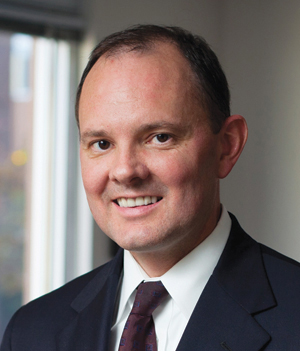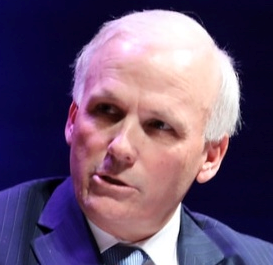
Crimes against humanity are certain serious crimes committed as part of a large-scale attack against civilians. Unlike war crimes, crimes against humanity can be committed during both peace and war and against a state's own nationals as well as foreign nationals. Together with war crimes, genocide, and the crime of aggression, crimes against humanity are one of the core crimes of international criminal law and, like other crimes against international law, have no temporal or jurisdictional limitations on prosecution.

Mahmoud Cherif Bassiouni was an Egyptian-American emeritus professor of law at DePaul University, where he taught from 1964 to 2012. He served in numerous United Nations positions and served as the consultant to the US Department of State and Justice on many projects. He was a founding member of the International Human Rights Law Institute at DePaul University which was established in 1990. He served as president from 1990 to 1997 and then as president emeritus. Bassiouni is often referred to by the media as "the Godfather of International Criminal Law" and a "war crimes expert". As such, he served on the Steering Committee for The Crimes Against Humanity Initiative, which was launched to study the need for a comprehensive convention on the prevention and punishment of crimes against humanity, and draft a proposed treaty. He spearheaded the drafting of the proposed convention, which as of 2014 is being debated at the International Law Commission.

David Michael Crane is an American lawyer who was the Chief Prosecutor of the Special Court for Sierra Leone (SCSL) from April 2002 until July 15, 2005. During his tenure, he indicted, among others, the then-President of Liberia, Charles Taylor. Crane was replaced as chief prosecutor by his deputy Desmond de Silva. On April 26, 2012, the SCSL, sitting in The Hague, convicted Taylor on various charges. Crane served as Professor of Practice at Syracuse University College of Law from 2006 until 2018.

International criminal law (ICL) is a body of public international law designed to prohibit certain categories of conduct commonly viewed as serious atrocities and to make perpetrators of such conduct criminally accountable for their perpetration. The core crimes under international law are genocide, war crimes, crimes against humanity, and the crime of aggression.

Eugenio Raúl Zaffaroni is a former Argentine politician and judge. He served as a member of the Supreme Court of Argentina from 2003 until 2015, when he resigned due to age restrictions to hold the position. He subsequently served in the Inter-American Court of Human Rights from 2016 to 2022.

The United States is not a state party to the Rome Statute of the International Criminal Court, which founded the International Criminal Court (ICC) in 2002.

Andrew Fois is an attorney who serves as the chair of the Administrative Conference of the United States since 2022. He served as the deputy attorney general for public safety in the Office of the Attorney General in Washington, D.C. from April 9, 2012, to March 2015. He was awarded the Edmund Randolph Award, the Justice Department's highest honor for distinguished service.
Gregory H. Stanton is the former research professor in Genocide Studies and Prevention at the George Mason University in Fairfax County, Virginia, United States. He is best known for his work in the area of genocide studies. He is the founder and president of Genocide Watch, the founder and director of the Cambodian Genocide Project, and the Chair of the Alliance Against Genocide. From 2007 to 2009 he was the president of the International Association of Genocide Scholars.

Ruth Glushien Wedgwood is an American legal scholar who holds the Edward B. Burling Chair in International Law and Diplomacy at the School of Advanced International Studies of Johns Hopkins University.

Claudio Mauricio Grossman Guiloff is a lawyer and law professor. From 1995 until the summer of 2016, he served as dean of the Washington College of Law of American University in Washington, D.C. He continues to teach at the Washington College of Law and serve as Dean Emeritus.

Michael P. Scharf is co-dean, Joseph C. Hostetler – BakerHostetler professor of law, and the director of the Frederick K. Cox International Law Center at Case Western Reserve University School of Law. Scharf is also co-founder of the Public International Law & Policy Group (PILPG), a non-governmental organization (NGO) which provides pro bono legal assistance to developing states and states in transition. Since 1995 PILPG has provided pro bono legal assistance to states and governments involved in peace negotiations, drafting post-conflict constitutions, and prosecuting war criminals. Since March 2012, Scharf has also been the producer and host of Talking Foreign Policy, a one-hour radio program aired on a quarterly basis on Cleveland’s NPR affiliate WCPN 90.3 ideastream.

Kevin K. Washburn is an American law professor, former dean of the University of New Mexico School of Law, and current Dean of the University of Iowa College of Law. He served in the administration of President Barack Obama as Assistant Secretary for Indian Affairs at the U.S. Department of the Interior from 2012 to 2016. Washburn has also been a federal prosecutor, a trial attorney at the U.S. Department of Justice, and the General Counsel of the National Indian Gaming Commission. Washburn is a citizen of the Chickasaw Nation, a federally recognized Native American tribe.
Kimberly Prost is a Canadian jurist currently serving as a judge of the International Criminal Court, assigned to the Trial Division. She was elected to a nine-year term on December 5, 2017, was sworn in on March 9, 2018, and assumed full-time duty on June 11, 2018.

Fatou Bom Bensouda is a Gambian lawyer and former Prosecutor of the International Criminal Court (ICC), who has served as the Gambian High Commissioner to the United Kingdom since 3 August 2022.

O-Gon Kwon is a South Korean jurist, best known for being one of the three judges in the trial of Slobodan Milošević. He also sat on the bench for the trial of former Bosnian Serb leader Radovan Karadžić.

The Whitney R. Harris World Law Institute at Washington University School of Law, established in 2000 as the Institute for Global Legal Studies, serves as a center for instruction and research in international and comparative law.
David L. Bosco is an American journalist, author and academic who writes on the subject of international relations with a focus on the United Nations, international courts, and the law of the sea. Currently, he is the executive associate dean of Indiana University's Hamilton Lugar School of Global and International Studies.
The Crimes Against Humanity Initiative is a rule of law research and advocacy project of the Whitney R. Harris World Law Institute. Started in 2008 by Professor Leila Nadya Sadat, the Initiative has as its goals the study of the need for a comprehensive international convention on the prevention and punishment of crimes against humanity, the analysis of the necessary elements of such a convention, and the drafting of a proposed treaty. To date, the Initiative has held several experts' meetings and conferences, published a Proposed Convention on the Prevention and Punishment of Crimes Against Humanity, and resulted in the publication of an edited volume, Forging a Convention for Crimes Against Humanity, by Cambridge University Press. The draft treaty is now available in seven languages. The UN International Law Commission produced its own, similar, set of Draft Articles on the Prevention and Punishment of Crimes against Humanity, and a proposed treaty is now being debated by governments around the world.

Sean David Murphy is an American international law scholar and practitioner currently serving as the Manatt/Ahn Professor of International Law at the George Washington University Law School in Washington, D.C., where he has been teaching since 1998. His primary areas of scholarly research are public international law, foreign affairs and the Constitution of the United States, international organizations, international dispute settlement, and law of the sea. Murphy served for ten years on the Board of Editors of the American Journal of International Law and is a former president of the American Society of International Law. He was elected twice by the United Nations General Assembly to serve as a Member of the U.N. International Law Commission (ILC) during 2012-2022. He was named by the ILC as Special Rapporteur for Crimes Against Humanity, a topic on which he has lectured widely.

Mark Steven Ellis is an international criminal law attorney and the executive director of the International Bar Association. He has been admitted as a Fellow to King's College London.














